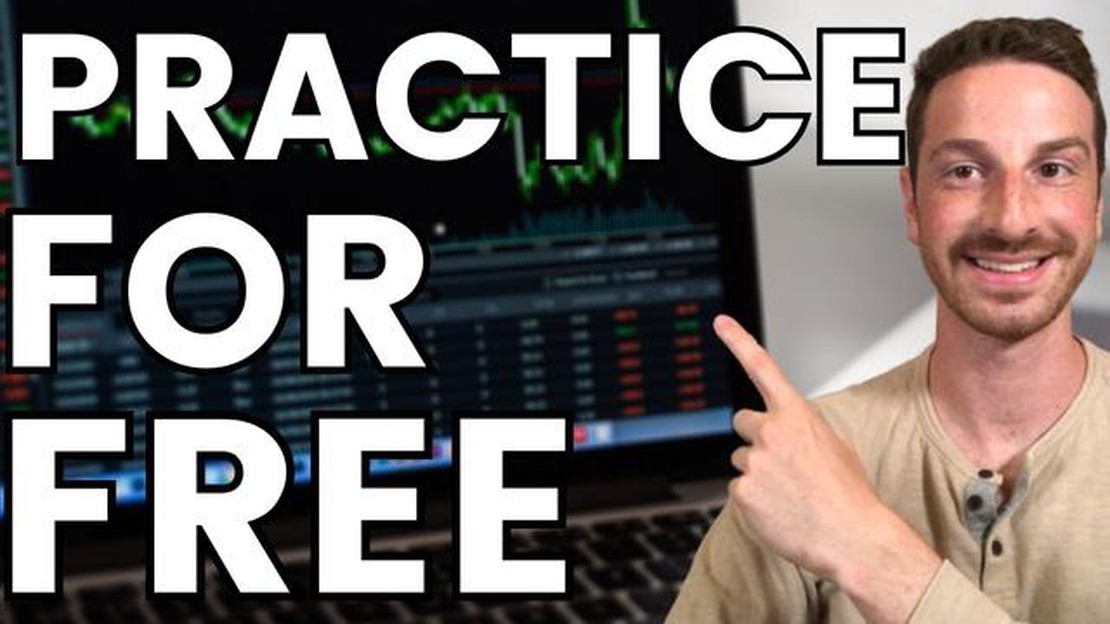Are there any legal binary options? Find out the answer here!
Are there any legal binary options? Binary options have gained popularity in recent years as an investment option for traders. These options offer a …
Read Article
Stock market simulators have gained popularity in recent years as a way for investors to practice trading strategies in a virtual environment. These simulators aim to replicate the real market conditions and provide users with an opportunity to trade virtual stocks using real-time data. However, the question remains: can these stock market simulators really predict success in the real market?
While stock market simulators can be a valuable tool for learning and practicing trading strategies, they have their limitations. One of the main limitations is that they do not take into account the emotional and psychological factors that can influence real market trading. In the real market, traders may experience fear, greed, and other emotions that can impact their decision-making process. Stock market simulators cannot replicate these emotions, which is a significant disadvantage.
Another limitation of stock market simulators is that they often do not fully reflect the complexity of the real market. Real market conditions can be influenced by a wide range of factors, such as geopolitical events, economic indicators, and company-specific news. Simulators may not accurately replicate these factors, which can lead to unrealistic trading outcomes. As a result, success in a stock market simulator does not necessarily guarantee success in the real market.
Despite these limitations, stock market simulators can still be a useful tool for novice investors. They provide an opportunity to learn about the basics of trading, practice different strategies, and gain confidence without the risk of losing real money. However, it is essential to recognize that success in a simulator does not guarantee success in the real market. Novice investors should use simulators as a stepping stone and continue to educate themselves about the complexities of the real market before making real investments.
While stock market simulators can be valuable tools for learning and practicing trading strategies, it is important to recognize their limitations. These limitations include:
Overall, while stock market simulators can provide valuable learning experiences, it is essential to recognize their limitations. They are not a foolproof prediction of success in the real market, and traders should supplement simulator training with real trading experience and education to develop a well-rounded understanding of the market.
Stock market simulators are widely used as educational tools and are often touted as a way for individuals to practice trading without risking real money. These simulators are designed to mimic the real-time movements and fluctuations of the stock market, allowing users to make virtual trades and track their performance.
While stock market simulators can provide a valuable learning experience and help users gain a basic understanding of how the market works, they often fall short when it comes to predicting real market success. There are several reasons why these simulators are not reliable indicators of future performance:
While stock market simulators can provide a valuable learning experience and help individuals understand the basics of trading, they should not be relied upon as accurate predictors of success in the real market. To enhance their trading skills and increase their chances of success, traders should combine the use of simulators with real-world market analysis and experience.
A stock market simulator is a virtual platform that allows users to practice trading stocks in a simulated environment. It mimics the real stock market and provides users with virtual money to invest and trade with.
No, stock market simulators cannot accurately predict success in the real market. While they can provide a useful learning experience and help users understand how the stock market works, they lack the real-world factors and emotions that affect actual market performance.
Yes, there are several advantages to using a stock market simulator. It allows beginners to learn about investing and trading without risking real money. It also provides a safe environment to test different strategies and gain experience before entering the real market.
Stock market simulators can be used effectively by treating them as a learning tool rather than a prediction tool. Users should take the opportunity to educate themselves about the stock market, experiment with different strategies, and learn from their successes and failures in the simulated environment.
Are there any legal binary options? Binary options have gained popularity in recent years as an investment option for traders. These options offer a …
Read ArticleInvesting in the Thailand Stock Market: A Comprehensive Guide If you’re a beginner investor looking to expand your portfolio, the Thailand stock …
Read ArticleTop Alternatives to ActivTrades: A Comprehensive Guide If you’re looking for alternatives to ActivTrades, you’ve come to the right place. ActivTrades …
Read ArticleIs InstaForex an ECN Broker? When it comes to choosing a forex broker, one of the factors that traders often consider is whether the broker is an ECN …
Read ArticleExploring Advanced Order Types: Everything You Need to Know When it comes to trading in the financial markets, having a comprehensive understanding of …
Read ArticleDownload MT4 on Apple: Step-by-Step Guide Welcome to our step-by-step guide on how to download MT4 on your Apple devices. Whether you own an iPhone, …
Read Article